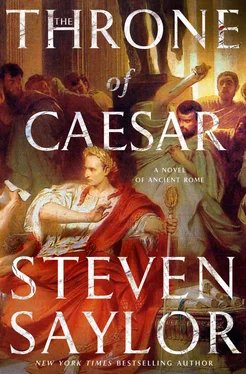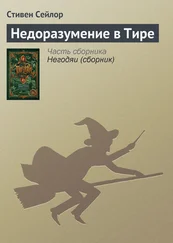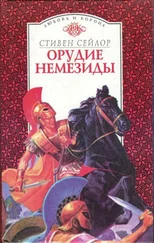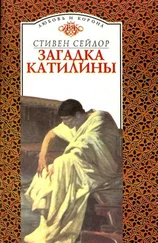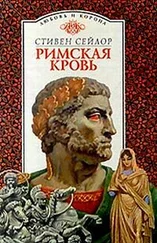Стивен Сейлор - The Throne of Caesar
Здесь есть возможность читать онлайн «Стивен Сейлор - The Throne of Caesar» весь текст электронной книги совершенно бесплатно (целиком полную версию без сокращений). В некоторых случаях можно слушать аудио, скачать через торрент в формате fb2 и присутствует краткое содержание. Год выпуска: 2018, Издательство: St. Martin's Press, Жанр: Исторический детектив, на английском языке. Описание произведения, (предисловие) а так же отзывы посетителей доступны на портале библиотеки ЛибКат.
- Название:The Throne of Caesar
- Автор:
- Издательство:St. Martin's Press
- Жанр:
- Год:2018
- ISBN:нет данных
- Рейтинг книги:5 / 5. Голосов: 1
-
Избранное:Добавить в избранное
- Отзывы:
-
Ваша оценка:
- 100
- 1
- 2
- 3
- 4
- 5
The Throne of Caesar: краткое содержание, описание и аннотация
Предлагаем к чтению аннотацию, описание, краткое содержание или предисловие (зависит от того, что написал сам автор книги «The Throne of Caesar»). Если вы не нашли необходимую информацию о книге — напишите в комментариях, мы постараемся отыскать её.
The Throne of Caesar — читать онлайн бесплатно полную книгу (весь текст) целиком
Ниже представлен текст книги, разбитый по страницам. Система сохранения места последней прочитанной страницы, позволяет с удобством читать онлайн бесплатно книгу «The Throne of Caesar», без необходимости каждый раз заново искать на чём Вы остановились. Поставьте закладку, и сможете в любой момент перейти на страницу, на которой закончили чтение.
Интервал:
Закладка:
It was the wine intoxicating me, changing my reality, I thought—then I realized I hadn’t touched my cup since our reading began. A slave appeared from time to time to replenish or replace the lamps. This silent, flitting figure seemed like a shadow visitor from some other world.
The poem certainly achieved one goal of such a work, and more profoundly than I had ever before experienced: I forgot completely the cares and distractions of the workaday world. The Zmyrna created its own world, which seemed in some impossible way to be more real than the one where I fretted and fussed each day.
A summary of Zmyrna the story cannot possibly convey the power of Zmyrna the poem. Those who can read Latin must read it for themselves to understand what I experienced that night, and indeed still experience anytime I happen to pick up that poem and scan even a few verses. But here I will tell her story in bare detail.
The setting of the tale was the island of Cyprus, in the long-ago days when it was ruled by King Cinyras and his queen, Cenchreis. Of all the men in the world in those days, Cinyras was the most handsome, with a beauty to rival that of Achilles or even Apollo. It was more from her father than from her mother that their daughter, Zmyrna, inherited her beauty. Even as a child she was strikingly lovely, and with each year that passed the girl grew yet more alluring. Queen Cenchreis, proud of her daughter’s beauty—which far surpassed her own, if not that of her husband—boasted at a public banquet, where all could hear, that Zmyrna was even more beautiful than Venus.
What madness possessed Cenchreis to make such a claim, which could only give offense to the goddess? From high Olympus, hearing her name invoked, Venus pricked up her ears. She overheard the boast. She flew faster than a comet across the sky and stopped above the island of Cyprus to look down at the royal assembly, narrowing her gaze until it fixed on young Zmyrna. The girl was on the very cusp of womanhood, her body still soft and smooth like that of a child yet beginning to show the shapely contours of a woman’s hips and breasts. Her face, likewise, was exactly poised between the innocence of a child and the allure of a woman. Her beauty was poignant, seductive, breathtaking, the beauty of all women and yet of none, for no such beauty as that of Zmyrna had ever existed among mere mortals—except in the person of her father.
Venus had expected to find the queen’s boast frivolous and hollow. Instead, she was taken aback by what she saw. The goddess was not pleased.
Venus considered how she might avenge herself on the boasting queen and her daughter. She summoned Cupid and whispered in his ear. Grasping his bow and arrow, the winged cherub flitted downward to the island of Cyprus. He took aim not at the beautiful king or the boasting queen, but at their daughter, who let out a gasp as the arrow struck her breast and then, its poison delivered, vanished into thin air. No one at the banquet ever saw the arrow, not even Zmyrna, who clutched her breast and wondered at the sudden pain—a pain she had never felt before, so exquisite it might almost be called a pleasure.
The princess turned her gaze to her father. Everyone called Cinyras the most handsome man on earth, but for the first time Zmyrna understood why this was so. She stared at her father, transfixed, and touched the place where the arrow had pierced her.
The banquet ended with an announcement by the king: His daughter, Zmyrna, had come of age to marry. Any suitors who thought themselves worthy of her were invited to present themselves at the palace in the coming days. Zmyrna heard this decree not with excitement but with dread.
Suitors came from far and wide. To each, Cinyras put two challenges—first a feat of strength or daring, then a riddle seemingly impossible to solve. With these riddles, Cinna took the opportunity to digress into some of the poem’s most obscure references. Had the poet been less skillful, this part of the Zmyrna might have become tedious. Instead, the language was so ingenious and the startling revelations of forgotten lore so fascinating that I found myself wishing this part of the poem could have been longer .
Some suitors passed the tests, others did not; but to Zmyrna herself the king granted the final say. He loved his daughter too much to force any marriage on her, no matter how suitable the match or outstanding the suitor. Zmyrna rejected one suitor after another; not one of them would she accept. When pressed for a reason by her parents, she dissembled. To tell the truth was unthinkable—that she grew heartsick at the idea that any man but Cinyras should ever have her. The one mortal in the world whom she desired was the one man she could never have.
She hid this passion and tried to forget it, but the longer she concealed it, the deeper it grew. The girl became despondent. She barely spoke and could scarcely eat or sleep. Thinking her ill and desperate to cure her, Cinyras and Cenchreis consulted oracles, called on physicians, and prayed to Asclepius. But Zmyrna grew more fragile day by day, consumed by her shameful secret.
The king and queen each blamed the other for their daughter’s decline. They fell to bickering and moved to separate bedchambers.
One night, alone in her room, Zmyrna decided to hang herself. Had she died, her secret would have died with her, and perhaps Venus would have been satisfied with this revenge on Cenchreis. But at the last moment, as the noose was tightening on Zmyrna’s throat, the girl’s nursemaid discovered her and pulled her free of the rope. The old woman had tended Zmyrna from infancy, loved her dearly, and knew her better than did anyone else. She sensed that the cause of the girl’s despair was some forbidden love and demanded that Zmyrna tell her the name of her beloved. Zmyrna refused. The old woman tore open her gown to bare the sunken breasts that had nourished Zmyrna as a baby. At the sight of them, Zmyrna was convulsed with sobbing. Her face wet with tears, barely able to speak, she spoke the name of her beloved: “Cinyras. My father, the king.”
The nurse was speechless. She covered her breasts and ran from the room. But the love she felt for Zmyrna was greater than her revulsion. In her thoughts, she sought justification for Zmyrna’s passion. She considered all the animals that mate freely with parent or offspring; if nature allows such freedom to the birds and beasts, why not to mortal men and women? Cinna described the nursemaid’s thoughts in an uncommonly straightforward manner. I felt a chill as I read the words aloud:
“What nature allows, jealous law forbids. And yet …
Somewhere far from here, they say, are lands where mother and son,
Daughter and father mate. Siblings, too, get and beget,
And love is increased by the double bond. If under that sun
My mistress had been born, then, oh! Her passion could be let
Free. Wretched girl, to have been conceived where none
Can even speak of such a love. Like a crushing debt
Her unspent passion weighs upon her. What can be done?”
At length, the old woman returned to the girl and told her that she had devised a plan to save her. The idea was audacious. Zmyrna was at once delighted and appalled. She refused at first, but then, by gradual degrees, she was seduced by the nursemaid’s cunning and the power of her own desire.
That night the nursemaid stole into the king’s bedchamber after all his attendants had withdrawn. Thinking that only bad news about his daughter would bring the nursemaid to him at such an hour, Cinyras was alarmed. But the nursemaid dispelled his fear with a beguiling smile and told him that she had come on a mission suitable only to such a place and such an hour. She had been approached, she said, by a beautiful girl—so beautiful, indeed, that she must be the most beautiful girl on the island of Cyprus, save for Zmyrna. Smitten by the king’s perfect form and face, this girl was in a fever of longing and desperate to give herself to him.
Читать дальшеИнтервал:
Закладка:
Похожие книги на «The Throne of Caesar»
Представляем Вашему вниманию похожие книги на «The Throne of Caesar» списком для выбора. Мы отобрали схожую по названию и смыслу литературу в надежде предоставить читателям больше вариантов отыскать новые, интересные, ещё непрочитанные произведения.
Обсуждение, отзывы о книге «The Throne of Caesar» и просто собственные мнения читателей. Оставьте ваши комментарии, напишите, что Вы думаете о произведении, его смысле или главных героях. Укажите что конкретно понравилось, а что нет, и почему Вы так считаете.
